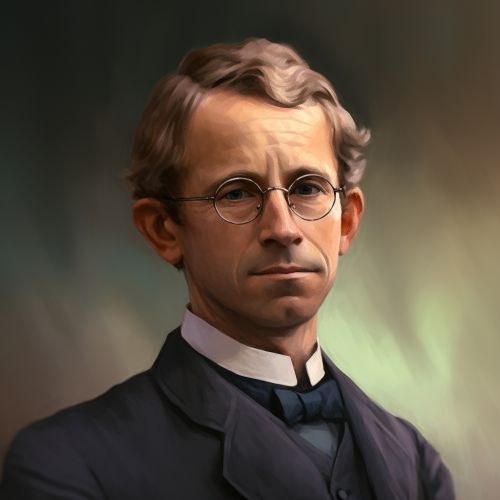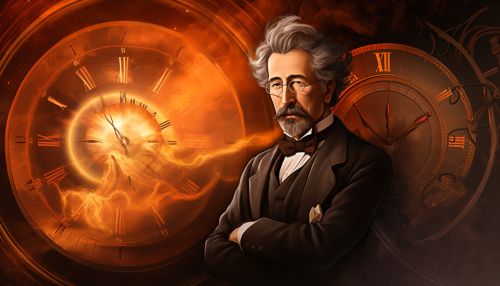Quantum Theory
Introduction
Quantum theory, also known as quantum mechanics, is a fundamental theory in physics that provides a description of the physical properties of nature at the scale of atoms and subatomic particles. It is the foundation of all quantum physics including quantum chemistry, quantum field theory, quantum technology, and quantum information science.
Historical Development
The development of quantum theory was initiated by Max Planck's discovery in 1900 that light energy is emitted and absorbed in discrete units called quanta. Later in 1905, Albert Einstein proposed that not only the energy, but also the radiation itself was quantized in the same manner.


Principles of Quantum Theory
Quantum theory is built on several core principles that distinguish it from classical physics.
Wave-Particle Duality
One of the key principles of quantum theory is the wave-particle duality. This principle postulates that all particles exhibit both wave and particle properties. A central concept of the wave-particle duality is the complementarity, which states that particles can exhibit either particle or wave characteristics, but not both at the same time.
Uncertainty Principle
The uncertainty principle, formulated by Werner Heisenberg in 1927, is another fundamental concept of quantum theory. It states that the position and the velocity of an object cannot both be measured exactly, at the same time, even in theory.
Superposition and Entanglement
The principle of superposition states that a physical system—such as an electron in an atom—can exist in multiple states or configurations simultaneously. When measured, however, it gives a result corresponding to only one of the possible configurations.
Quantum entanglement is a phenomenon observed at the quantum scale or atomic scale where entangled particles stay connected so that the actions performed on one affect the other, no matter the distance between them.
Implications and Applications
Quantum theory has profound implications and numerous applications. It has not only transformed our understanding of the fundamental nature of the universe and our place within it but also has practical applications in various fields.
Quantum Computing
Quantum computing is a type of computation that makes direct use of quantum-mechanical phenomena, such as superposition and entanglement, to perform operations on data. Quantum computers are believed to be able to solve certain computational problems, such as integer factorization, substantially faster than classical computers.
Quantum Cryptography
Quantum cryptography is the science of exploiting quantum mechanical properties to perform cryptographic tasks. The best-known example of quantum cryptography is quantum key distribution which offers an information-theoretically secure solution to the key exchange problem.
Quantum Teleportation
Quantum teleportation is a process by which quantum information can be transmitted from one location to another, with the help of classical communication and previously shared quantum entanglement between the sending and receiving location.
